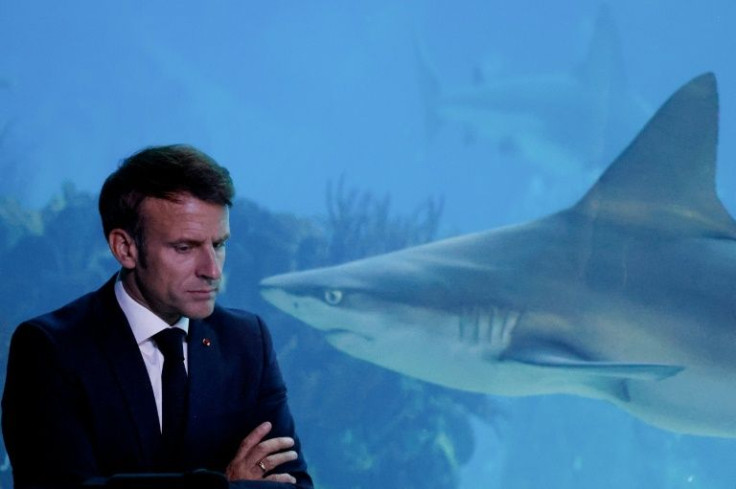Macron Reshuffles French Cabinet For Tricky Second Term
French President Emmanuel Macron on Monday reshuffled his government looking to reset a second term off to a rocky start after his failure to win a parliamentary majority.
While he finally ceded to public pressure by sacking Damien Abad, the solidarity and social cohesion minister accused of rape, there was little sign of a major renewal that could turn Macron's fortunes around.
Other posts in the 41-strong cabinet -- exactly divided between men and women -- mostly went to politicians from the different factions in Macron's camp.
The foreign, finance and defence ministers all remained in place.
Opponents from all sides of the French political spectrum criticised the reshuffle as superficial, saying it failed to represent a meaningful change.
Abad later told reporters he faced "despicable slanders organised around a calendar" designed to drive him out of government after just 45 days.
Chrysoula Zacharopoulou, who has been accused by former patients of rape during gynaecological examinations, is staying on as state secretary for development, Francophony and international partnerships.
Monday's reshuffle brought in some new faces, including Abad's replacement, French Red Cross chief Jean-Christophe Combe, and emergency doctor Francois Braun as health minister.
"Our whole health system is exhausted" after two years of Covid-19, Braun said as he took the reins at the ministry.
He promised a "renovation" of healthcare that for now "lacks flexibility, lacks visibility (and) is no longer understood either by our fellow citizens or by health workers".
OECD chief economist Laurence Boone was named Europe minister, replacing Macron loyalist Clement Beaune who became notorious for verbal jousting with Brexit supporters. Beaune was moved to the transport ministry.
Christophe Bechu, mayor of the Loire city of Angers and a close ally of former prime minister Edouard Philippe, was named environment minister.
The reshuffle was "a message to the troops: loyalty will be rewarded. Looking ahead to the coming months, when passing new laws is likely to come down to just a few votes," tweeted Frederic Says, a political commentator for broadcaster France Culture.

Opposition figures jostled to condemn the reshuffle, with hard-left France Unbowed MP Clementine Autain calling it "a little game of musical chairs" and saying "feminist pressure alone" had succeeded in dislodging Abad.
Greens MP Sandrine Rousseau said she had "never encountered (new minister Bechu) in the smallest ecological battle" -- although Macron has long trailed environmental protection as a priority.
And far-right leader Marine Le Pen charged that "those who failed are all reappointed" to the government.
Macron retorted to claims he had failed to take account of the parliamentary results at Monday's first cabinet meeting.
The traditional parties of government -- the Socialists, now part of the broad NUPES left alliance, and the conservative Republicans, reduced to 60 seats -- had shown an "absence of will to join a government agreement or any form of coalition", he said.
A first test for the new government will come on July 6, when Prime Minister Elisabeth Borne lays out her policies before parliament.
There will no traditional high-stakes confidence vote afterwards, government spokesman Olivier Veran said Monday, ending weeks of speculation.
Instead, he said, the ruling alliance would try to build coalitions for every draft law it submits.
Macron beat Le Pen a second time in April's presidential run-off to win a new five-year term.
But a lacklustre campaign for last month's parliamentary vote saw his supporters win just 250 seats, 39 short of the absolute majority needed to push through new laws.
Macron was largely absent from the domestic political stage between the presidential election and the vote for the National Assembly.
His focus on the international scene and Russia's invasion of Ukraine ended up reinforcing his arrogant and distant image, rather than showing the public he was fighting France's corner as he hoped.
"Whereas yesterday he opposed 'imperfect compromises', from now on the president will have to resign himself to them," newspaper Le Monde commented at the weekend, bemoaning "presidential hesitations" and "ideological vagueness" at the Elysee.
© Copyright AFP 2024. All rights reserved.





















